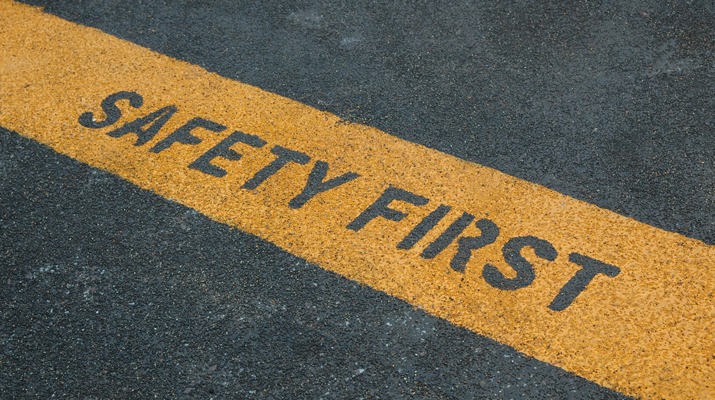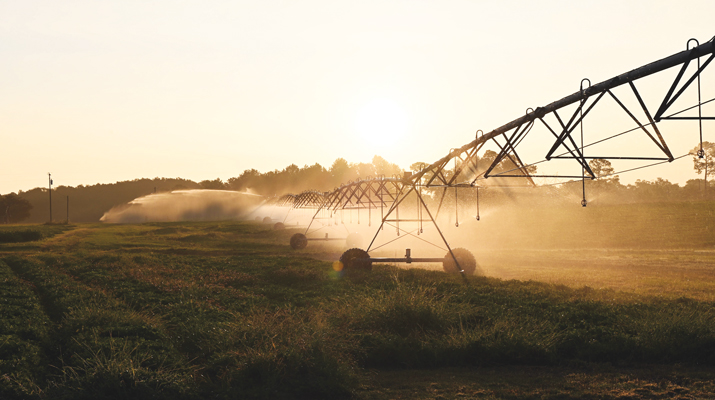Envirogard driving full line of propane mowers against the competition
Jim Coker has spent the last three years traveling around the country, visiting dealers and potential customers and expressing just how far his Envirogard propane lawn mowers have come.
 |
Envirogard, a unit of Onyx Environmental Solutions based in Monroe, N.C., is in its third year of selling the low-polluting lawn mowers to an ever-growing customer base.
The company’s president, Coker has been working to establish dealers around the country who will handle any service questions and issues that arise.
It’s the latest process for a small company that has capitalized on a big idea — propane lawn mowers — and markets itself as offering the only patented low-polluting lawn mowers.
Onyx has produced propane power equipment for the janitorial market — buffers and strippers — for 15 years.
 |
“We’re not new at this,” said Coker, whose company’s product lines include Natural Clean (carpet-cleaning system), Engineered Products (floor care for industrial and commercial businesses) and Envirogard.
But the Envirogard lawn mowers have received the latest focus because of propane’s benefits. Over 100 mowers were sold last year, and Coker is hoping to exceed the 300 mark this year.
“You’re not just showing a picture with tanks on a mower,” Coker said of his tour to promote the product. “People want to see it, run it, understand it. You have to show and tell and almost demonstrate.”
Coker met with a municipality in California that was running diesel mowers. It wanted to know if Envirogard’s mowers could perform as well as its own. Coker volunteered a test run in an area of thick grass in a nearby park.
“I take my propane mower and go across the road to the park, and I didn’t even slow down,” Coker recalled. “I cut it like butter. They said, ‘You like showing off, don’t you?’ I said, ‘I like proving a point.’ “
Envirogard is connecting with dealers from coast to coast who are already in the business of selling and servicing lawn mowers, with locations in California, Arizona, Texas, Wisconsin, Iowa, North Carolina, South Carolina and Florida and more to come.
“We need a service network. The big thing is, ‘Where do we get it serviced? Where do we take it?’ ” Coker said. “What I’m doing is setting up dealers to handle any service issues.”
In addition, Envirogard is partnering with people in the propane gas industry to promote the low-polluting mower.
“We already have customers out there using propane. Why not introduce them to a new line of propane power equipment and one with larger load uses?” Coker said. “We’re not only building business for ourselves, but we’re helping the economy, the environment and the customer in the process. That’s the reason the partnership must be with the propane gas people; the dealer network is to have the unit serviced.”
Envirogard’s business is mostly commercial — parks and recreation, schools, governments — but the company hopes to expand to the consumer market.
Envirogard has a private label relationship with Encore Manufacturing Co. Inc., which makes the base units for the mowers before Envirogard personnel install propane components.
“The Encore mower is a production model right off the assembly line,” Coker said.
Envirogard has expanded its product line this year as it offers walkbehinds with three sizes of belt-driven mowers and hydraulic mowers. The full line also includes zero-turn radius sit-down models with 34 in., 42 in., 48 in., 52 in., 60 in., 61 in. and 72 in. cutting widths, ranging in price from $6,500 to $14,900.
The 61 in., which costs $13,900, has proven to be the most popular, Coker said, but with a more complete line of products available this year, the company looks for greater balance in sales.
All zero-turn models have 33-lb. tanks, which hold 7 1/2 gallons and allow for two-plus hours of runtime per gallon for smaller engines and one gallon per hour for larger engines.
The 34-in. to 48-in. models have single tanks across the back, while the 60-in. to 72-in. models have dual tanks, one on each side of the driver. The 52 in. can be equipped with single or dual tanks.
The walkbehinds, at $3,000 for the low-end belt-driven and $5,000 for hydraulic, are fitted with 20-lb. tanks.
The company’s smaller mowers (13 to 28 hp) run on Kawasaki engines, while the bigger mowers, at 31 hp, are equipped with Briggs & Stratton Vanguard engines.
Although the mowers cost $1,000 to $3,000 more depending on size compared to their gasoline counterparts, the benefits of using propane are invaluable.
“In mowing tests we are getting 10 percent better fuel efficiency by no waste going out of the exhaust pipe, and propane is 30 percent cheaper to buy on average,” Coker said.
Coker and his staff calculated that by running a large zero-turn mower five days a week, eight hours a day over 10 months, one can save $2,000 a year from low fuel costs, better fuel efficiency and limited maintenance.
“You start seeing the advantages of going to propane,” he said.
According to the Propane Education and Research Council, propane-powered lawn mowers are beneficial when compared to gasoline because of lower fuel costs, lower emissions, longer run times between refueling, easier and cleaner refueling and better protection against fuel theft. It also will not contaminate soil or water.
“According to the EPA, a 3.5-hp push mower pollutes as much as 40 automobiles,” Coker said. “To add to the problem, the EPA says that each year 17 million gallons of gas is spilt from overfilling tanks of lawn and garden equipment.”
Ozone Action Days often can halt mowing jobs in certain cities — Phoenix was affected for 40 straight days, Coker said — but with propane-powered products, the work continues.
Coker also stresses that propane is produced mostly in the United States, so there is less dependency on foreign oil.
“It’s not only good for the environment, it’s good for the American people because it lessens our dependency on foreign oil, as President Bush mentioned in his State of the Union address at the beginning of the year,” he said.
As Coker and his company continue to grow in the propane lawn mower market, they will face competition from Dixie Chopper, which unveiled its line of propane mowers last spring.
Coker said Envirogard’s competitor doesn’t get the same results with fuel and emissions efficiencies as his company’s products.
“We hold the patent, and we granted them a license, but they’re technologically not the same,” Coker said. “There’s a lot of different technology that we didn’t share with them.”
One of the big differences between the companies’ mowers, Coker said, centers on the fuel system.
“Dixie’s running liquid propane, and I’m running vapor,” Coker said. “In the lawn mower industry these mowers are bouncing, and when you’re jumping around you can get liquid digestion into the regulator, freeze the regulator and stop the fuel supply. Therefore, you’re stopping the mower.
“There’s no way we can have freeze-up,” he added. “Our tanks are patented, specialized tanks that only allow vapor to come out. You never have freeze-up problems.”
Envirogard continues to grow its products into the market, hoping to establish a dealership in every major city in the country. The company also is expanding worldwide, Coker said, already having shipped a container of propane mowers to Australia, planning a move into Canada this year and into other countries in 2008.
















